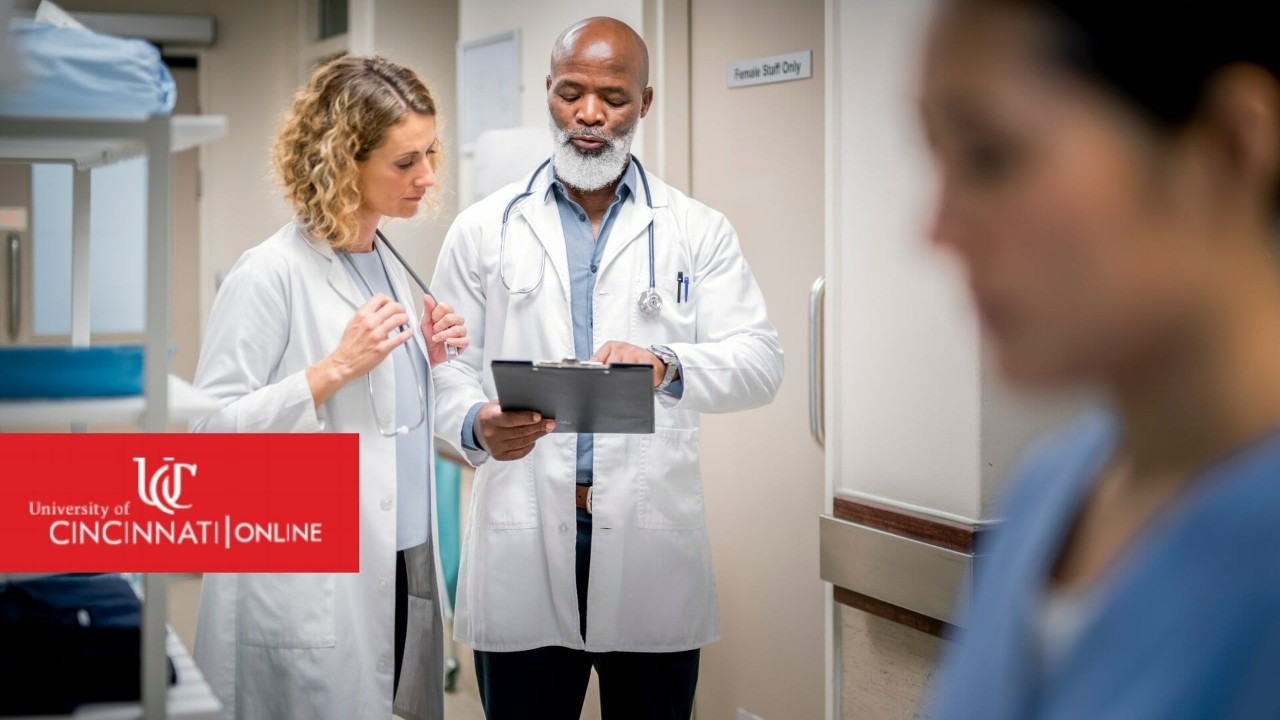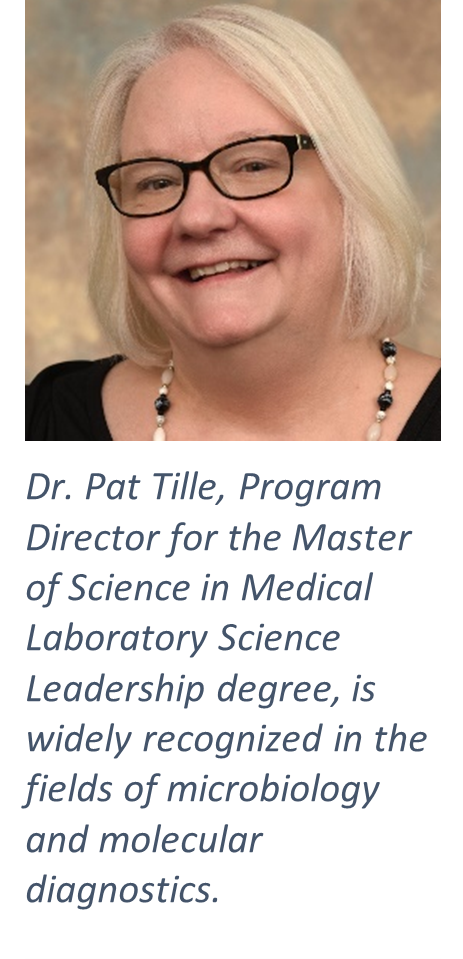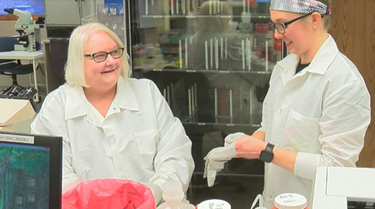Benefits of Health-Focused Master’s Degree Go Beyond Salary

Dr. Pat Tille is the Program Director for the Master of Science in Medical Laboratory Science Leadership program at the

Juggling Personal and Professional Demands
Dr. Tille worked toward her advanced degrees while she was a wife and a busy mom to four children. Her desire to take on even more, such as lead industry roles and authoring an internationally recognized diagnostic microbiology textbook, brought Pat myriad opportunities she would never have dreamed of when she first began her career. “Things took off around 15 years ago for me, when I became more involved in the American Society for Clinical Laboratory Science (ASCLS). As a student, I started out as the ASCLS South Dakota student representative in 1993. Since then, I’ve been the state president three times, served on the national board, helped raise money for scholarships, and more,” Dr. Tille says. When Dr. Tille talks with our students about the career opportunities that await them and the challenges of earning a master’s while working full-time, she shares practical time management advice and real-world experiences from her storied career.
Advanced Health Care Degree Pay Differentiators

Benefits of Specializing and a Larger Professional Network
Earning a higher salary is undoubtedly a key driver in getting a master’s degree. But there are other benefits, including the opportunity to focus on a specialty area or a particular passion. That’s what Dr. Tille did when she shifted her focus to biomedical health sciences. “With an advanced degree, your opportunities expand in ways you hadn’t thought of before,” Dr. Tille says. “And because the field of health care — and its associated technologies — is always growing and changing, there will be a need for specialists in emerging areas.”
Larger Healthcare Networking Benefits
Another benefit of working toward an advanced degree is that an individual’s professional network grows as they interact with fellow students and learn from their experiences. And while this new network may feel beneficial during the years at UCO, its value follows the graduate when they’re back fully at work and continues throughout their career. Dr. Tille says students enrolled in UCO’s programs, including the Master of Health Administration and Master of Health Informatics, come from diverse backgrounds. “Some individuals having 20 years of health care industry experience and some are newer undergrads,” Tille says. “This mix benefits our programs.”
Health Care Degree Programs at UC Online
If you’re new to online degree programs or our university, here are the top reasons healthcare-focused students choose UCO for an advanced degree:
- Classes are 100% online with no required campus visits.
- You learn from “scholar-practitioners,” educators working in health care today.
- Programs are flexible so that you can balance your education with work and life responsibilities.
- Your professional connections grow, and your understanding of the health care landscape broadens.
- You will immediately be able to apply what you learn at UCO to advance your career!
UCO’s master’s programs welcome students from the Cincinnati metro, throughout the US, and from outside the country, too. No matter where they live, students in a program, such as the Master of Science in Medical Laboratory Science Leadership, regularly interact with their online-learning peers and instructors. Students focus on their coursework during the day, in the evening, or on weekends — whatever works with their lives’ demands. Working toward an online degree is just as rigorous as one in a traditional campus setting. “I don’t think everyone realizes this,” Dr. Tille says. “Online learning is much different than taking a correspondence course. While there’s built-in flexibility, you’re not going at your own pace. You have deadlines to meet.”
Students Stay Connected Throughout Pandemic
For people working in health care, the pandemic’s negative impact on their professional and personal lives will be measured for decades to come. One bright side for those health care professionals studying at UCO is that they escape the pandemic’s restrictions in their online classroom. Interacting with classmates and educators becomes the bright spot in their challenging days, where they can talk about school and decompress about work and family life, too. “The positive social aspect of these connections can’t be underestimated,” Dr. Tille says. “Students may not be able to travel or escape their family and work commitments during the pandemic, but they get to interact with others in the same situation, chatting back and forth and asking each other questions. This enriches their experience.”
When a Job Becomes a Career
While some of the benefits we mentioned are more measurable — higher salaries, broader professional networks, and career opportunities as specialists — there’s another reason to consider an advanced degree. Dr. Tille describes it this way: “When our advanced degree students apply what they’re learning to their work and not just memorizing things, they’re learning in a different way than they did when they studied for their bachelor’s degree. They move from a job mindset to a career mindset, and I enjoy seeing that shift and what it means to them.”
